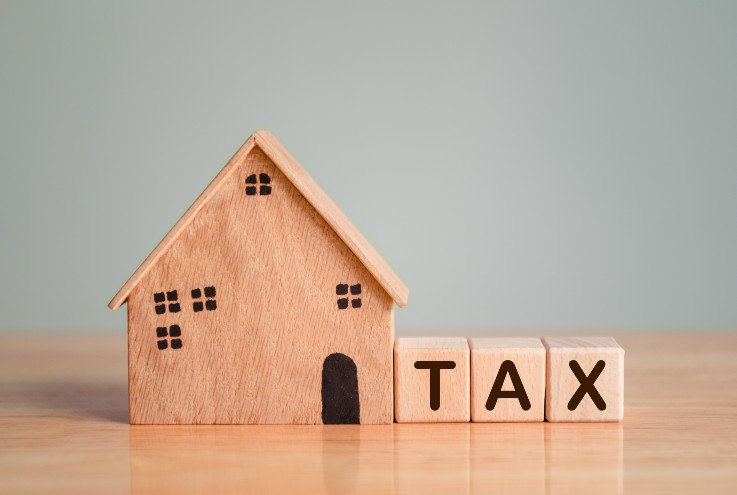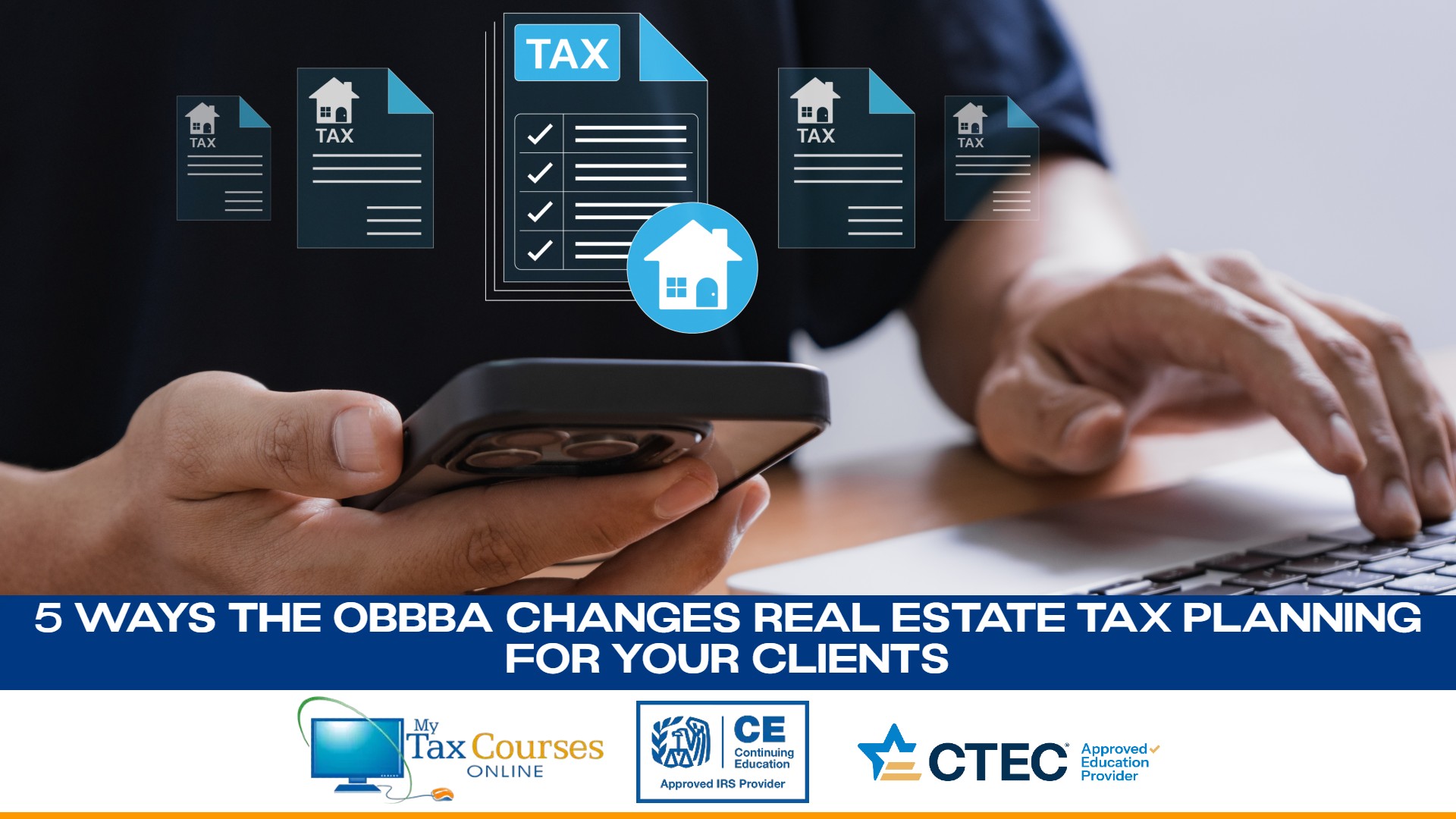If you're a tax preparer or Enrolled Agent specializing in real estate taxation, it’s essential to understand how the One Big Beautiful Bill Act (OBBBA) is reshaping depreciation rules and client strategies. Here are five key reasons why this change demands your attention:
1. 100% Bonus Depreciation Is Back — Permanently
The OBBBA reinstates 100% bonus depreciation for qualified property acquired and placed in service after January 19, 2025, reversing the previously scheduled phase‑down. This powerful tool allows clients to fully expense eligible assets in the year of purchase—dramatically boosting first-year deductions and potential cash flow.
2. More Assets Qualify for Immediate Expensing
Under OBBBA, tangible personal property, computer software, and qualified improvement property (QIP) now qualify for 100% bonus depreciation—and this includes both new and used property in arm’s-length transactions.
3. Enhanced Section 179 Limits Expand Flexibility
Section 179 expensing has become even more powerful. Starting in 2025, the maximum deduction is elevated to $2.5 million, with a new phase‑out threshold of $4 million. This gives clients with smaller taxable incomes a valuable tool—especially when bonus depreciation isn't optimal.
4. New Bonus for Qualified Production Property (QPP)
OBBBA introduces Section 168(n)—allowing 100% depreciation on certain nonresidential real property used in qualified production activities. Construction must begin between January 20, 2025, and December 31, 2028, with placement in service before 2031. This is a game-changer for manufacturing clients and real estate professionals working with production facilities.
5. Strategic Planning Opportunities Are More Relevant Than Ever
With bonus depreciation automatic unless elected out, and Section 179 applicable on a per-asset basis, tax professionals must help clients choose the right mix. Optimizing between both mechanisms—and layering cost segregation when appropriate—can significantly increase deductions while maintaining future flexibility.
Wrap-Up
These revisions mark a substantial shift in real estate tax strategy. For tax preparers and Enrolled Agents, this is not just another law—it's a planning opportunity. From improved expensing flexibility to enhanced cash flow potential, OBBBA invites a fresh review of your clients’ asset acquisition and timing strategies.
At the end of the day, staying updated is key. That’s why My Tax Courses Online offers an in-depth, IRS-approved course diving into real estate depreciation, bonus depreciation, like-kind exchanges, and OBBBA updates—designed specifically for professionals like you.

2025 Real Estate Tax Laws and Depreciation, Including OBBBA Updates, presented by Doug Stives, MBA, CPA
Enroll today to turn these tax law changes into a strategic advantage for your clients! https://mytaxcoursesonline.com/our-courses/individual-programs/individual-courses/2025-real-estate-tax-laws-and-depreciation
Sources & URLs
- Grant Thornton – OBBBA depreciation insights
https://www.grantthornton.com/insights/alerts/tax/2025/insights/obbba-offers-new-ways-to-accelerate-depreciation - MGO CPA – Bonus depreciation and real estate planning
https://www.mgocpa.com/perspective/new-bonus-depreciation-rules-real-estate/ - DHJJ – Section 179 and bonus depreciation limits for 2025
https://dhjj.com/bonus-depreciation-section-179-2025/ - Paramount Property Tax Appeal – Real estate tax planning trends
https://www.paramountpropertytaxappeal.com/blog/real-estate-tax-planning - RSM US – OBBBA tax updates and bonus depreciation
https://rsmus.com/insights/services/business-tax/obba-tax-bonus-depreciation.html - CLA (CliftonLarsonAllen) – Section 179 and bonus depreciation strategies
https://www.claconnect.com/en/resources/articles/25/section-179-and-bonus-depreciation-examples-and-strategies





